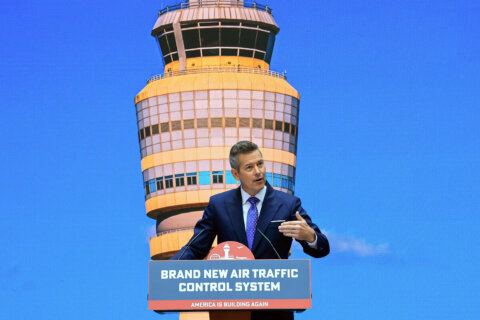Metro is disputing a blistering safety audit that described its Rail Operations Control Center as a “toxic workplace culture,” riddled with harassment, racial discrimination and internal conflict.
A report released Friday by the law firm Littler Mendelson, P.C. — which Metro hired to investigate the Washington Metrorail Safety Commission’s September safety report — said the firm couldn’t substantiate many of the claims of a “toxic culture” as reported by the independent safety commission.
The Washington Metrorail Safety Commission said it stands by the initial report despite Metro’s disagreement and take on the recent report.
“This (Washington Metropolitan Area Transit Authority) report confirms that the WMSC detailed audit process is accurate and sound,” safety commission Chair Christopher Hart said. “The toxic workplace culture in the ROCC and the other issues identified in the extensive audit report are unacceptable safety risks that the WMSC is requiring Metrorail to address.”
Though the law firm hired by Metro found no evidence of a “toxic culture,” it said that disrespectful conduct was common inside the ROCC, which acts as Metro’s “nerve center,” and recommended that the ROCC change its workplace culture.
“Disrespectful and unprofessional conduct is commonplace in the ROCC,” the firm’s report stated. “While the investigation did not substantiate allegations in the WMSC report concerning racial discrimination, employees did report observing conduct that a person could perceive as sexual harassment; use of profanities; and hearing racial and homophobic comments.”
The law firm also said it could not confirm the WMSC report’s allegations that the control center’s senior management contributed to the hostility of the workplace or that they condoned it.
Regarding safety at the ROCC, the earlier report also said Metro managers interfered with the safety audit by attempting to “shape statements” of ROCC controllers who were interviewed, and that Metro’s senior vice president of rail operations, Lisa Woodruff, directed employees “not to talk to the WMSC, to resist required corrective actions and to paint a rosy picture of ROCC.”
The safety commission noted some of these conversations were held away from microphones that record audio in the ROCC.
The law firm hired by Metro said it couldn’t find evidence to support these claims of interference, but noted that their investigators were not able to reach the ROCC controllers who initially made the claims of a toxic workplace or interference.
“Littler contacted outside counsel for WMSC in an effort to interview controllers who were the source of the determinations in the audit,” the report said. “No response was received, so Littler randomly selected controllers to interview based on controllers’ work schedules and other information.”
Metro General Manager Paul Wiedefeld released a statement Friday, claiming the law firm’s findings clear management — Woodruff and former ROCC Director Deltrin Harris — of wrongdoing.
“This report exonerates Lisa Woodruff and Deltrin Harris of the charges contained in the WMSC report and repeated in dozens of media accounts,” Wiedefeld said in a release. “While this bell cannot be un-rung, the record must be set straight to restore the good names of transit professionals whose reputations were unfairly tarnished.”
Following the release of the safety commission’s report in September, Woodruff had been reassigned to another position, according to The Washington Post. It’s unclear if she will return to her previous position.
In his statement Friday, Wiedefeld said, “Our work to transform the ROCC will continue under the new leadership that we have in place and we are on track to make short- and long-term improvements that go above and beyond required corrective actions. We are committed to making our rail control center safety the standard bearer and envy of the transit industry.”
Another claim from the September safety commission report — that a ROCC supervisor was intoxicated while on duty — was investigated by the transit agency’s inspector general, who concluded, “There was no credible evidence to support the claims,” Metro Board Chair Paul C. Smedberg said in a statement released by Metro.
The safety commission’s report, released Sept. 8, led to loud calls for reform at Metro. That report was based on a seven-month investigation by members of the commission, and was based in part on interviews with 28 Metro employees, including 21 of the 26 controllers then on Metro’s staff.
The report from the law firm hired by Metro spent three months investigating the safety commission’s claims and interviewed just 12 employees, who were selected at random, according to its report.
WTOP’s Jack Moore contributed to this report.









